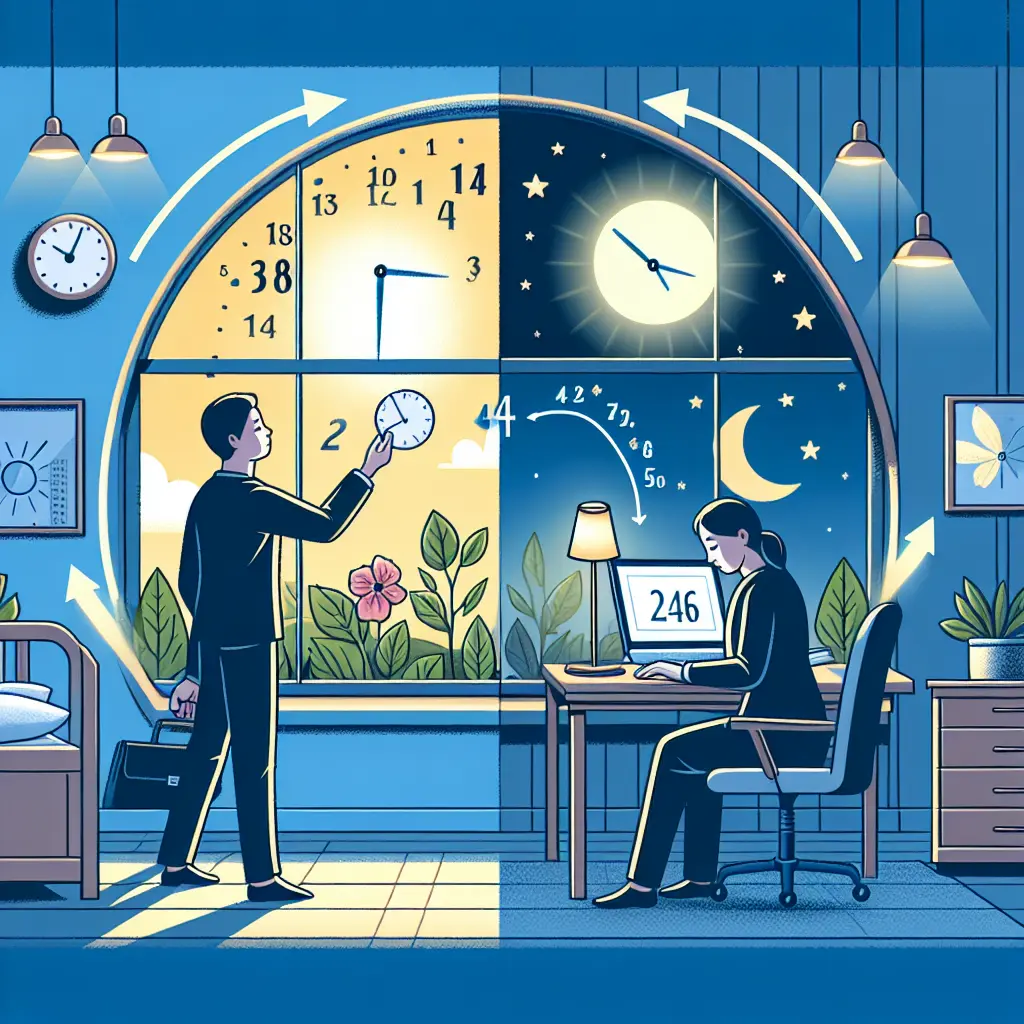
Understanding how light exposure affects our sleep quality and circadian rhythms is more crucial than ever in our technology-driven world. As we delve into the intricate dance between light and sleep, we also explore how managing light can lead to healthier sleep patterns and overall well-being.
The Science of Light and Sleep
At the core of our sleep health are circadian rhythms, which are internal processes that regulate the sleep-wake cycle, repeating roughly every 24 hours. These rhythms are significantly influenced by environmental cues, particularly light exposure. Exposure to natural light during the day and darkness at night helps maintain a healthy circadian rhythm, thereby promoting better sleep quality and overall health.
How Light Affects Melatonin
Melatonin, often referred to as the 'sleep hormone,' plays a pivotal role in regulating our sleep cycle. Light exposure, especially at night, can inhibit the secretion of melatonin, leading to disruptions in our sleep patterns. This phenomenon underscores the impact of artificial light on circadian rhythm, which is particularly concerning in our modern environment where blue light from screens is a constant presence.
Blue Light Sleep Disruption
Studies have shown that blue light, which is high-energy visible light emitted by most LEDs and electronic devices like smartphones and laptops, is especially potent in affecting melatonin levels. This disruption can lead to difficulty in falling asleep and poor sleep quality. As such, reducing blue light exposure before bedtime is crucial for maintaining our natural sleep-wake cycles.
The Role of Natural Light
Conversely, exposure to natural sunlight can have beneficial effects on sleep. Sunlight exposure and sleep health are positively correlated, with daylight helping to regulate our sleep patterns and boost mood. Interestingly, recent studies have highlighted that even subterranean environments, like underground hotels, are exploring how to harness Earth’s natural insulation and lighting to promote better sleep among guests.
Managing Light for Healthy Sleep
To enhance sleep quality through light control, consider these strategies:
- Maximize Natural Light Exposure: Aim to get at least 30 minutes of sunlight each morning. This can help reset your circadian rhythms and promote higher energy levels throughout the day.
- Limit Evening Screen Time: Reduce blue light exposure by turning off electronic devices at least an hour before bedtime. This helps decrease blue light sleep disruption.
- Use Appropriate Bedroom Lighting: Opt for dimmer, warmer lights as you prepare for bedtime to signal to your body that it's time to wind down.
Recent Insights and Connections
Recent news has shed light on various aspects of health and environment that indirectly relate to our topic. For instance, a study suggesting even cats can mourn shows the complexity of biological rhythms across species, possibly including circadian rhythms. Additionally, insights from Olympic sprinter Gabby Thomas highlight the importance of routine and physical health, which are integrally tied to sleep quality.
Moreover, understanding how the brain handles waste during sleep can provide deeper insights into why disrupted sleep can have profound effects on brain health. As Ryan Reynolds' trainer suggests, simple lifestyle adjustments can significantly enhance longevity and quality of life, echoing the importance of managing light for healthy sleep.
Implementing Changes
For those inspired to adjust their lifestyles for better sleep, consider starting small:
- Gradually introduce morning walks into your routine.
- Invest in blackout curtains or a sleep mask to minimize nighttime light exposure.
- Consider replacing evening TV time with reading under a soft, warm light.
Conclusion
The interplay between light exposure and sleep quality is a fundamental aspect of our health. By understanding and managing light exposure throughout the day, we can significantly enhance our sleep quality and overall well-being. As we continue to navigate a world saturated with artificial light, making intentional changes to our exposure can be a powerful tool for enhancing our natural circadian rhythms.
Remember, your journey towards better sleep doesn't have to be daunting. Small, consistent adjustments in your daily light exposure can lead to significant improvements in your sleep health and general vitality.
Lucas Gregory